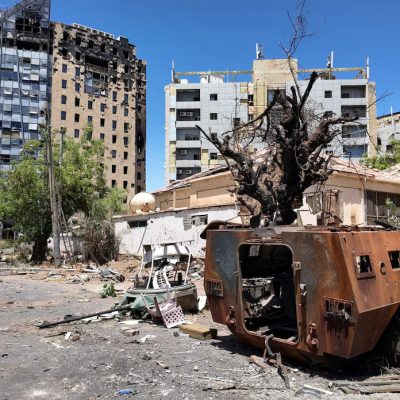By: Professor. Satoshi Ikeuchi, Professor, Global Security and Religion, University of Tokyo.
The attacks by drones and cruise missiles on ARAMCO’s oil processing facilities in Abqaiq and Khurais which took place on September 14 made it public how vulnerable the critical infrastructures of the Gulf states are.
Even though who is the real perpetrator and where the attacks originated are still disputed, the implications of this incidents are clear. There must not and cannot be a Gulf War across the Northern and Southern shores of the Persian/Arabian Gulf because they are too close to each other to protect themselves at the time of all-out war even when they are equipped with costly defense armament.
If the attacks are done by Iranians, it signifies that they expect any direct US military intervention unlikely, after the Trump’s reversal from reprisal to Iran’s downing of US drone on June 20 and dismissal of then National Security Advisor John Bolton on September 10.
Mr. Trump condemned Iran and threatened sanctions but kept short of pledging any military retaliation on behalf of Saudis, reiterating his intention to avoid any involvement in direct military conflicts with Iran.
It is also significant that the attack took place just before the Israel’s do-over election on September 17.
The fact that Israeli voters turned their backs to Netanyahu even when there risen a spectacular security crisis in the Gulf tells a lot about the change of the circumstances. Netanyahu, who fought and won successive elections on his masterful security policy performance, now reaps the whirlwind for its repercussions.
If Netanyahu had won a clear victory in this election, the attacks on Saudi oil facilities might have taken as more serious problem and more hardline policies could have been taken by the world powers, particularly the US government.
When Netanyahu faced potential electoral defeat, President Trump gave him the cold shoulder, saying “Our relations are with Israel” not with Mr. Netanyahu himself.
The emergence of the coalition of Arab parties called the Joint List on the third place has also historical significance. Israeli Arabs have long suffered from political apathy, but finally the political parties were united and Arab voter’s turnout rose, to counter the pernicious campaign by Netanyahu and other right-wing leaders who incited fear against Arab participations and tried scare tactics to drive Jewish voters away from voting to centrist Blue and White coalition. The tactics backfired.
If the Arab political party bloc becomes a coalition partner or becomes a leading opposition party in Israel, in either case, it is a decisive change in history.





